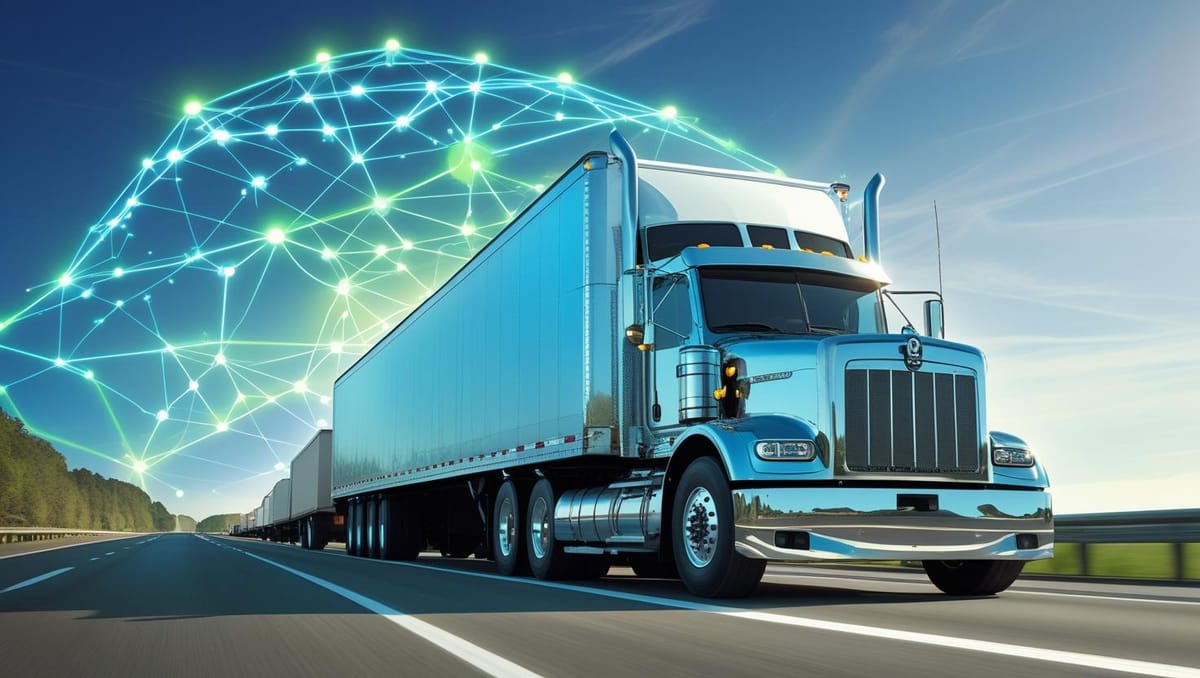The safety principles behind award-winning fleets
Plus: Use AI to free up your team—not frustrate them

Safety isn’t a destination. It’s a mindset—a journey without a finish line. That attitude has helped Nussbaum Transportation build a culture of excellence, earning industry recognition and multiple fleet awards. Keep reading to uncover the habits that set Nussbaum apart, and how your fleet can adopt them too.
Also in this issue, we explore how to avoid the pitfalls of faulty AI and outline how to craft a clear, effective AI roadmap for your business.
Finally, we report on why one state is stepping away from federal English proficiency standards.
This is going viral: A shocking video shows a landfill worker slamming a door on a trucker’s dog during a confrontation in North Carolina.
Dive in for practical insights and strategies to help move your company forward.

How an elite fleet approaches safety and work culture
There's not necessarily one set of rules to become a "best fleet." But there are principles that can help a trucking company achieve that kind of recognition. The Truckload Carriers Association launched an Elite Fleet certification program this summer to recognize North America’s top for-hire carriers that are setting the bar in driver satisfaction, safety and workplace culture.
One of those elite fleets is Nussbaum Transportation. We spoke to its chief administrative officer, Jeremy Stickling, about his strategies to run a successful trucking business. —Shefali Kapadia
What do you think is the hardest part of managing/operating a trucking business today?
From my seat, the threat of nuclear, unreasonable verdicts, and how plaintiff bars across the country have convinced the public to look at truckers so negatively. I know so many across the industry who put incredible time and financial investment into preventing crashes. They care so much about safety! I'd love to see the investors who put money into plaintiff firms looking for the next big "financial win" to perhaps invest in further safety technology and research.
What's one strategy your fleet uses to build and enforce a culture of safety throughout the business?
We focus our measurements and incentives on behaviors, not results. Our driving professionals get regular feedback and can earn a significant bonus if they show a conservative and careful approach to their job. We'd rather change the behavior before the incident, as opposed to reacting to the citation or crash after the fact.
Nussbaum was recently recognized as a TCA Elite Fleet. What are you most proud of at your company that you believe helped win you this recognition?
Our survey results (both from the Elite Fleets program and from an internal survey that we run) have been extremely good. This is very rewarding, as the accolades come directly from our own fleet. However, strong survey results are never a sign that you've arrived. We choose to interpret them as a sign that we are on the right track and to double down on our efforts. Excellence in safety and culture is not a destination.
What's your No. 1 piece of advice to other carriers to create a better working environment for their drivers and staff?
It can be tempting to think that a fancy, sophisticated program, perk or benefit is the solution to better culture and engagement. You cannot create culture with a program. It is crucial to start with the right mindset and the right heart. Do you and your team truly care about people? Do you want others around you to truly succeed in work and in life? If you are not genuine, then even the best designed programs will not work.

AI for small business: Have a roadmap and start small
Adopting AI, especially for small businesses with competing priorities and tight budgets, can feel like too tall a task. Janet Lam, an AI solutions expert and the founder of Building Blocks Business Planning, says the process doesn't have to feel like a hurdle. Companies can begin with a roadmap and start small in areas that make an immediate impact, like automating a repetitive task.
But as always, the human-technology balance is paramount. "The goal isn’t to turn everything over to AI," Lam notes. "It’s to use it to give your team more time to focus on higher-impact work."
Why this matters: When we recently asked readers how many of you use AI in your business, every respondent said yes. AI has no doubt arrived in the trucking industry. The most successful users will find out what AI excels at, and what's better left to people.

UNDER PRESSURE: Ex-drivers say trucking firm pressured them into unsafe driving practices
DOORS CLOSING: 450-truck fleet Carroll Fulmer shutters due to freight market, lawsuits
JOB GROWTH: Truck transportation jobs rise by 6,600 YOY
NEXT FRONTIER: Aurora Innovation plans to take autonomous trucks to the Sunbelt

"If you squander the public's trust by putting out a faulty product and assuming that it's just fine because it's slightly better than people, it's not going to work long-term." - Conor Cawley, Tech.co
All types of artificial intelligence tools are making their way into the spotlight, whether it's a logistics application, a personal productivity tool or just a funny image generator. But there's a danger in these technologies not being optimized or tested, especially for sensitive or enterprise use cases, and even something like autonomous trucks. Cawley discusses the dangers of faulty AI on the Truck Tech podcast. Listen here.

Calif. declines to enforce English proficiency rule
California Highway Patrol is not putting truck drivers out of service for failing to comply with English proficiency rules, even though federal guidance made the violation an OOS criterion. (By the way, the link below has a list of ELP OOS violations by state.)
Why this matters: The state highway patrol's reason: "It is not part of California law." But CHP said DOT inspectors working in California or along the border can still enforce federal regulations. California's stance means drivers who aren't proficient in English, and the fleets that employ them, may be off the hook—at least for now. (Overdrive)
With tariff uncertainty, supply chain leaders turn to planning
As tariffs with some countries take effect and trade negotiations with others carry on, U.S. executives are switching their outlook. It's no longer about panic but about planning, especially in areas affected by tariffs like supply chain management. Business leaders are also looking at how to mitigate or pass on costs—an especially tricky area for mid-sized businesses that don't have the pricing power of large enterprises.
Why this matters: Are you tired of the word "uncertainty" yet? What's certain is that it still exists in the current trade climate, but supply chain leaders are planning around it as much as possible. That gives logistics and trucking companies opportunities to be at the front lines as shippers are planning out their cargo movements for the next few months. (PYMNTS)
Protecting your business amid driver recruitment challenges
Logistics companies say their biggest challenge is recruiting and retaining truck drivers. The key to still running the business with driver shortages or turnover issues is to focus on efficiency, such as adopting new tech, and to invest in your existing workforce.
Why this matters: Fleets big and small aren't immune to the workforce challenges of the trucking industry, but trucking companies can deploy certain strategies to keep current drivers satisfied, new talent engaged and the business running as smoothly as possible. (Tech.co)

OOIDA, ATA applaud FMCSA nominee, but will he be confirmed?
Derek Barrs, the nominee to lead the Federal Motor Carrier Safety Administration, has the backing of key trucking groups. Both the Owner-Operator Independent Drivers Association and the American Trucking Associations have issued statements expressing their support for him to lead the agency, noting Barrs' focus on safety and fighting fraud and his openness to hear small business truckers' concerns.
Why this matters: The FMCSA hasn't had a confirmed administrator since 2019. A lack of permanent leadership can affect the agency's ability to make, enforce, modify or repeal regulations. The Senate Commerce Committee advanced Barrs’ nomination by a party-line vote of 15-13. Next up: The full Senate will vote on Barrs' confirmation, but the date of that vote is TBD. (Land Line)

Thanks for reading today's edition! You can reach the newsletter team at editor@theinsidelane.co. We enjoy hearing from you.
Interested in advertising? Email us at newslettersales@mvfglobal.com
The Inside Lane is curated and written by Shefali Kapadia and edited by Bianca Prieto.





Comments ()